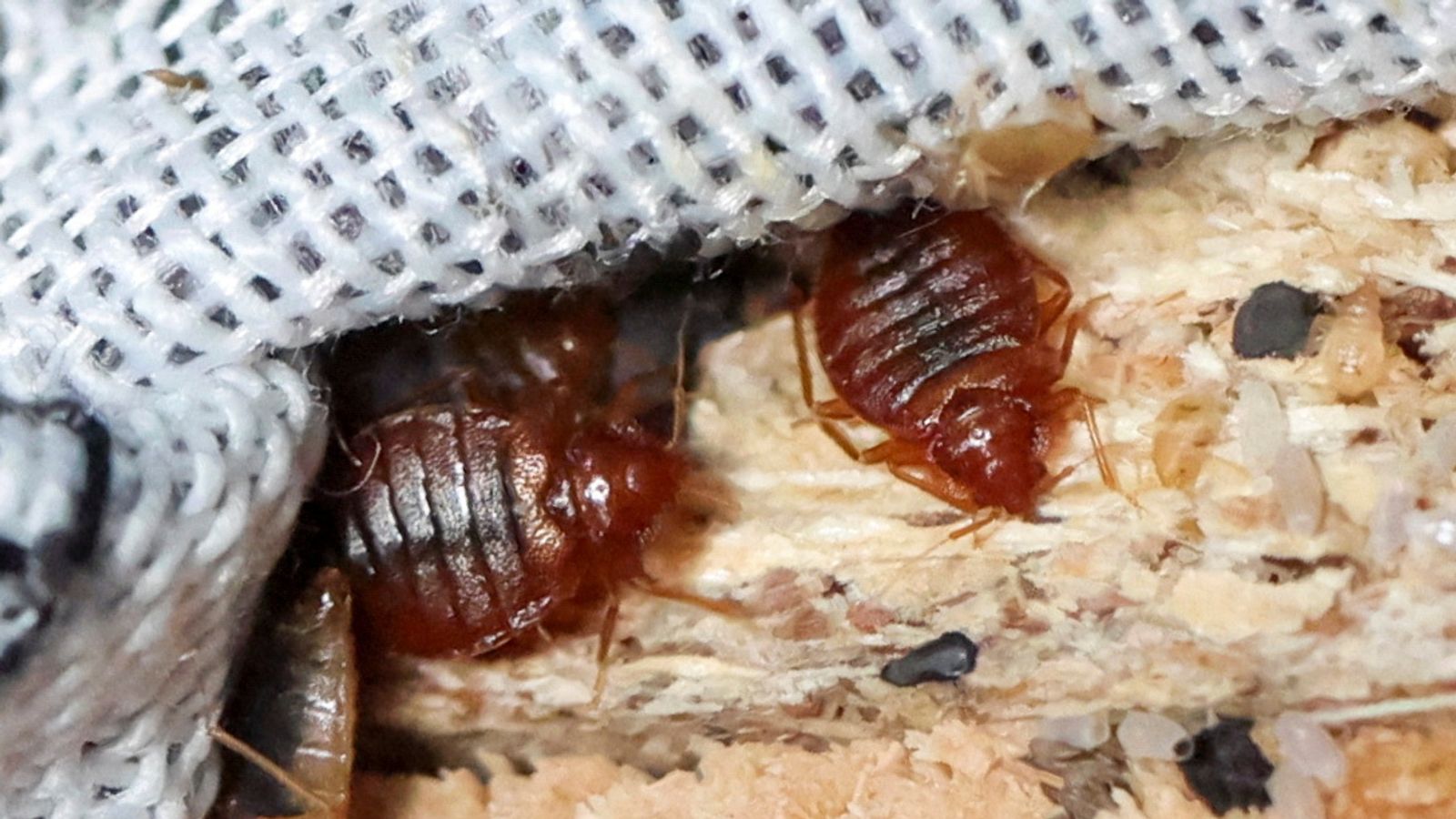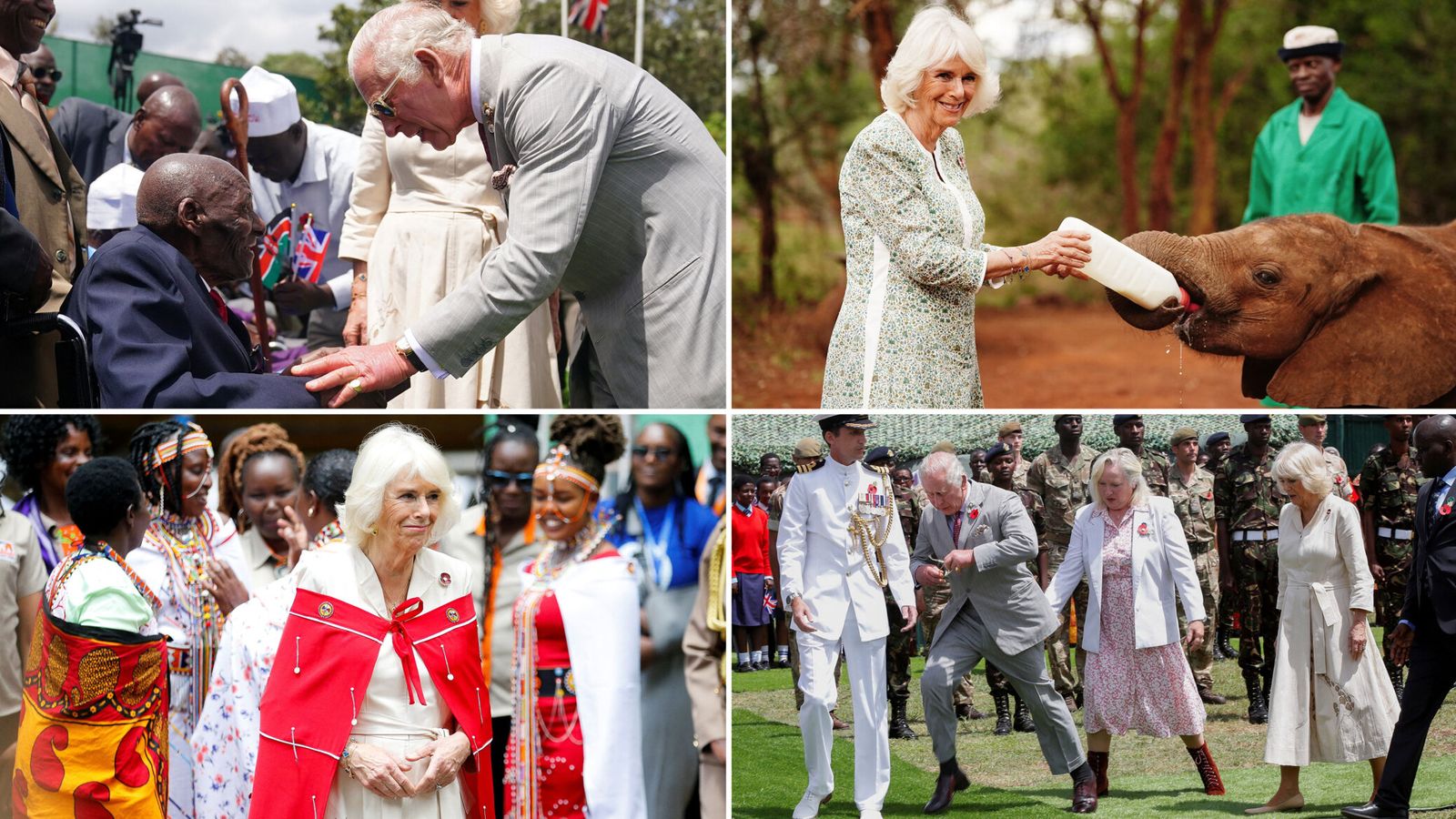Women would “highly likely” suffer unlawful harassment in the Red Arrows because of their sex, raising concerns the squadron was not a “safe environment” for them, an inquiry has found.
Predatory and other forms of unacceptable behaviour by male members of the team was widespread and “normalised”, with women viewed as the “property” of an individual or the squadron, according to the devastating findings that were published on Wednesday.
Unacceptable behaviour was so prevalent that servicewomen would club together in “shark watch” mode on social events to try to protect each other from drunken, unwanted advances.
There was also a “bystander culture” on the squadron – all the way up the chain of command – meaning bad behaviour went “unchecked”, the report said.
Air Chief Marshal Sir Richard Knighton, the head of the Royal Air Force, said he was “appalled” at what had been uncovered by the non-statutory inquiry into unacceptable behaviour on the Royal Air Force Aerobatic Team, better known as the Red Arrows.
He offered his “unreserved apologies” to those who suffered during a period that spanned from 2017 until 2021, in particular three women who he said had raised the alarm to the previous chief of the air staff two years ago.
Two Red Arrows pilots have already been sacked because of their actions.
A further nine personnel have faced varying forms of administrative action, including over what was described as “command, leadership and management” failings, the RAF revealed.
Separate to the inquiry, it emerged a person “associated with the Red Arrows” was convicted of battery in a court martial over smacking the bottom of a female colleague.
That incident happened in 2020, according to an RAF spokesperson.
Some of the key findings
Offering details about the biggest scandal to engulf the Red Arrows in its more than 60-year history, the inquiry found:
• Two incidents of “exposure of genitals”, but noted a “lack of offence… which suggests exposure of genitals and nakedness is normalised in a military environment”
• Several extramarital relationships, between a senior married individual and someone more junior, including those that impacted operational effectiveness and safety
• An alcohol-focused culture, with unacceptable behaviour often linked to booze and alcohol consumption also raising flight safety concerns
• Incidents of bullying
Head of RAF – ‘I am sorry’
Presenting the findings in a 76-page report, Air Chief Marshal Knighton said: “I am sorry and offer my unreserved apologies to any individuals that were subjected to unacceptable behaviours during their association with the Red Arrows, particularly the three women who felt they had no option but to raise their complaints directly with my predecessor.”
Much of the details collected in the inquiry, which heard evidence from more than 40 witnesses, were redacted.
However, the air chief, who had read the unredacted version, condemned the behaviours that were described, without giving details to protect the identities of the complainants.
He said: “I was appalled when I read the investigations’ findings. The behaviour of a minority of individuals has harmed the squadron’s reputation and that of the Royal Air Force… I am intent on rebuilding public trust in one of our highest profile units.”
Read more:
RAF sacks some personnel after claims of ‘unacceptable behaviours’
Red Arrows featured in conference on trust despite ‘toxic culture’ controversy
The Red Arrows squadron comprises around 110 personnel, including pilots and ground crew.
The crisis around what has been described as a “toxic culture” meant – given the sacking of two pilots – that the team has not been operating with the “Diamond Nine” formation of nine Hawk aircraft since 2022. It went down to seven jets, then rebounded to eight this season and is only set to return to nine in 2024.
Despite the damning findings, Air Chief Marshal Knighton said he had not considered disbanding the Red Arrows.
Inquiry recommendations
The inquiry recommended a number of moves, such as focus groups to help change the culture, which the head of the air force said had been accepted and in many places implemented already.
The lack of clarity over the sanctions and the fact that only two pilots were sacked will raise criticism from those impacted.
A second report, released simultaneously with the non-statutory inquiry, explored management and leadership failings by the chain of command in the Red Arrows and more senior levels within the RAF, though the names of those sanctioned were not released.
Setting out its findings, a review team that conducted the non-statutory inquiry, said it was “concerned that the Sqn [squadron] was not a safe environment for females and that it was highly likely that females would be subject to unlawful harassment because of their sex”.
Be the first to get Breaking News
Install the Sky News app for free
Unwanted behaviour
The types of behaviours described included: Unwanted physical contact; unwanted text messages outside work hours or perceived to be of a sexual nature and unwanted comments about their appearance
There was also “male sexual entitlement towards the females; being viewed as ‘property’ of either individuals or the Sqn”.
As to how the women on the squadron coped, the inquiry said they had “normalised” the behaviour and had even “got used to it”.
“Female SP [service personnel] naturally supported each other and reported modifying their behaviours to reduce the risk of being subject of UB [unacceptable behaviour] or ensuring that they would be believed if they needed to report an incident.”
The modifying behaviour was listed as: “Going to social situations as a group with ‘shark watch’ in operation within their cohort; limiting the amount of alcohol consumed in order to be able to respond effectively if they were subject to UB and to ensure their account would be believed and not dismissed due to consumption of alcohol; and modifying what they wear.”









